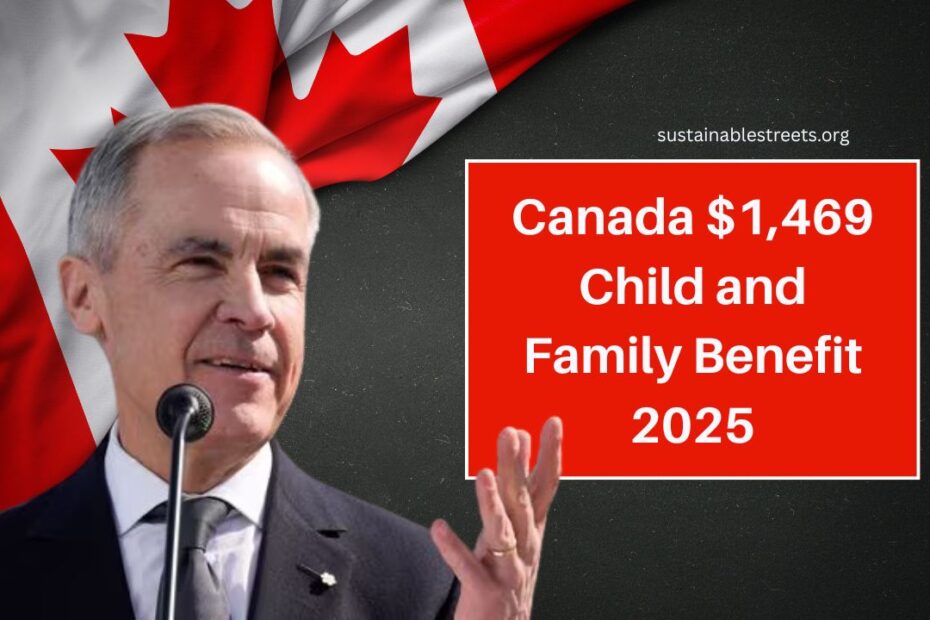The Alberta Child and Family Benefit (ACFB) helps lower‐ and middle-income families in Alberta with children under 18 by giving tax-free financial support. It’s administered by the Canada Revenue Agency (CRA) on behalf of Alberta. In 2025, there have been some increases and clear payment schedules.
This article explains exactly who qualifies, how much you can get, and when you’ll be paid under ACFB in 2025.
Eligibility Requirements
To qualify for the ACFB in 2025, you must meet all of the following:
| Criterion | Requirement |
|---|---|
| Residency | Live in Alberta |
| Children | Be parent/guardian of one or more children under 18 years of age. |
| Tax Filing | File your annual income tax return with CRA. |
| Income Criteria | Must meet net income / adjusted family net income thresholds. Base component begins to phase out above certain income; working component requires employment income above a modest threshold |
Additional things to know:
- Even families receiving other benefits (like AISH, Income Support, or Alberta child care subsidy) can still get ACFB, and ACFB will not reduce those other benefits.
- If family circumstances change (e.g. more children, moving out/in of Alberta), the eligibility or amount may change.
How Much You Can Get (2025 Amounts)
The ACFB has two components: a Base component, available to eligible families even if they have little or no employment income; and a Working component which adds extra support if family employment income exceeds about $2,760 annually.
Here are the maximum annual amounts for July 2024 to June 2025 (approximate), and what each component gives:
| Number of Children | Base Component (max/year) | Working Component (max/year) |
|---|---|---|
| 1 child | $1,469 | $752 |
| 2 children | $2,204 | $1,437 |
| 3 children | $2,939 | $1,847 |
| 4 or more | $3,674 | $1,982 |
Also note:
- The base amount begins to phase-out once family net income exceeds approx $27,024 (or $27,565 in some sources) and continues until higher thresholds.
- The working component requires income above ~$2,760/year; it also gets reduced once income surpasses higher phase-out limits (often in the $45,000-$46,000 range) depending on how many children.
Payment Schedule 2025
Knowing when payments will arrive is very important for budgeting. Below are the official ACFB payment dates in 2025, paid by the CRA:
| Installment | Payment Date |
|---|---|
| 1st | February 27, 2025 |
| 2nd | May 27, 2025 |
| 3rd | August 27, 2025 |
| 4th | November 27, 2025 |
Payment frequency & other points:
- Payments are quarterly: in February, May, August, November.
- Delivered by direct deposit or mailed cheque. Direct deposit tends to be faster.
- If the amount for a given quarter is $10 or less, payments may be consolidated and paid less often.
What About the “$1,469” Figure?
The amount $1,469 is not a fixed payment for all families, and it’s not a lump sum everyone gets. It is the maximum base component for one child for the benefit year. Families get more depending on:
- Number of children
- Whether they also qualify for the working component
- Whether their net income is low enough to avoid phase-out reductions
So a family with one child and low income might get close to the full $1,469/year base, plus additional working-component if eligible.
Common Misconceptions
- The ACFB is not part of the federal Canada Child Benefit (CCB); it is a provincial-level top-up but administered through CRA.
- Some reports misstate fixed numbers like “$1,469 every parent gets” — the actual figure varies per family based on income, children count, etc.
The Alberta Child and Family Benefit (ACFB 2025) is a valuable, tax-free support for eligible Alberta families with children under 18.
To receive the full supplemental support, ensure you file your taxes on time, keep your income and household status updated, and be aware of the quarterly payment dates: February 27, May 27, August 27, and November 27, 2025.
FAQs
No. If you file your annual tax return and you qualify for the federal Canada Child Benefit (CCB), you are automatically considered for ACFB.
If you move out of Alberta, you stop being eligible from the month you leave. If your family income increases, the benefit amount may be reduced due to phase-out rules. Conversely, if you have another child, you may qualify for a larger benefit.
